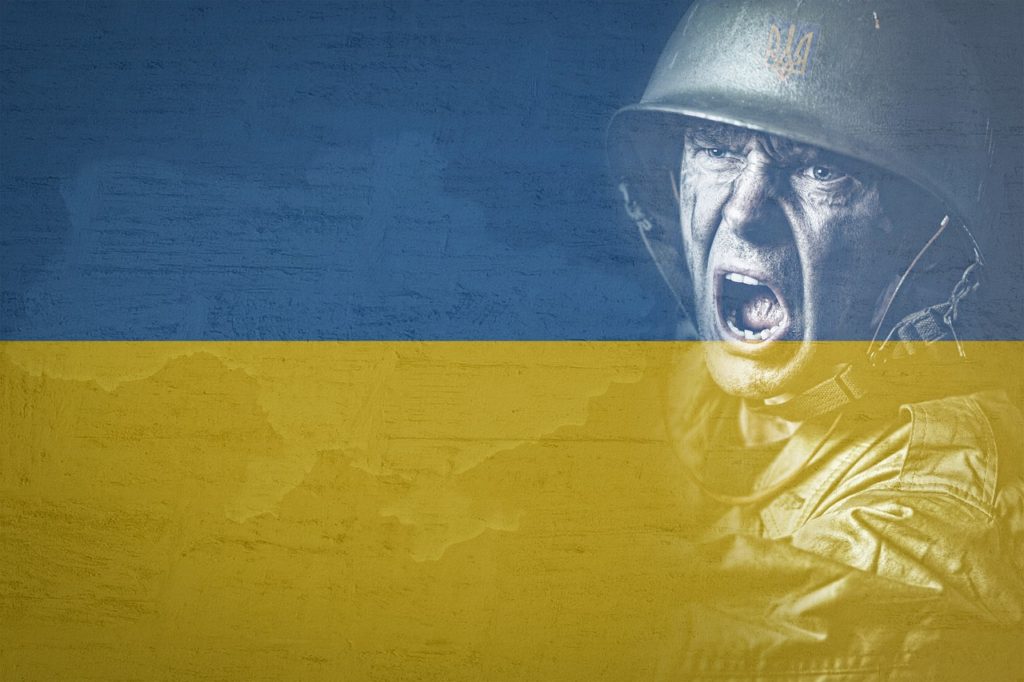Facing The (Horrible) Future
by Chris Martenson, Peak Prosperity:
 Our fate directly depends on our courage to change it
Our fate directly depends on our courage to change it
I’d like to tell you a short story based on a movie that has had a profound impact on me.
I’ll get to the story in a moment, but first, a little background on the movie…
It’s called Griefwalker (by Tim Wilson) and it focuses on the life and wisdom of Stephen Jenkinson, a theologian and philosopher who worked as an end-of-life specialist for many years. Because we all must face death in our lives, inevitably our own someday, I highly recommend this movie and Stephen’s work to everyone.
After sitting at the death beds of a thousand individuals, Stephen has accumulated a wisdom regarding the process of dying that is perhaps unmatched in our modern times. His views and insights are extraordinarily powerful and extremely well-delivered in the movie.
Stephen is a blunt yet thoughtful man, and my own interview with him (Living with Meaning) remains one of my all-time favorites.
At one point in Griefwalker, Stephen was lobbed what I’m sure the interviewer thought was a soft-ball question. From memory, and I last watched the movie a few years ago so I’m certain to have this inexactly recalled, it was along the lines of “So, Stephen, you’ve learned how to ease people through the process of dying. How is that done?” I guess the idea was that after being so steeped and skilled at shepherding people through the process of dying, Stephen had arrived at some tidy formula for making it as gentle as possible.
Without blinking Stephen said, “Oh no. Dying for most people these days is horrible.” After a few shocked fumbly moments by the interviewer, and I confess to having been shocked too, Stephen continued, explaining that the physical process of dying can certainly be managed easily and well with palliative care, but the emotional journey can be quite terrifying (at first).
The reason why is because most people spend their entire lives pretending as if death is somehow avoidable. So when they find themselves dying, they suddenly have to confront the fact that they may have forgotten to fully ‘live’ during their one and only shot at life.
To suddenly realize the most precious thing you had was barely treasured along the way, never to be recovered, can indeed be a horrible moment.
As far as we know, we’ve only got one life to live — and facing our end puts that into sharp focus. As Stephen says in his book Money and the Soul’s Desires, “Not success. Not growth. Not happiness. The cradle of your love of life … is death.”
To look back on one’s time on Earth and realize how much of it was spent not really being alive, not loving, not noticing, not being present with what is, is to realize that your one glorious ride was largely spent without reflection, depth or meaning. It was squandered. And there’s no undoing that fact. Again, that moment of realization is a bad moment.
I’m not writing this to push you to ponder your own demise, though that may be a healthy pursuit for many of us. Rather, I want to direct your attention towards a moment of horror that I think is coming – for all of us.
Where We’re Headed
Travel with me to the future. Imagine that the year is now 2040.
If we suddenly woke in that year, what would we see in the world? More importantly, what would we not see? Which species would be missing? Which ecosystems will have utterly collapsed?
By extrapolating trends already in place (many of which are accelerating) we can easily predict a future world where there are no large animals left. Perhaps the last giraffe was killed and eaten by a hungry mob back in 2033, joining the White Rhino which was lost back in 2018.
Lions and tigers can no longer be found in the wild; their genetic stock hopelessly compressed into a few zoos and frozen test-tubes, should humans ever rally to justify the expense of trying to resurrect those species.
There are no coral reefs anywhere in the oceans, and essentially no diversity of life left in the seas at all. Acidification has upset and mostly ruined the ocean ecology from the bottom up.
First, we noticed that the oysters no longer successfully made it out of the larval stage. But by the time the scientists delivered a loud enough warning for all of the missing copepods and other vital zooplankton, it was already too late. The jellyfish had taken over. Nobody has a clue how to get the ecology to return to one that can support tuna, rockfish, dolphins, whales, seals and seabirds. Those are all gone — starved, fished or hunted to extinction.
Worse, the ubiquitous jellyfish are entirely too efficient. In addition to decimating the zooplankton, the jellyfish are eating the phytoplankton responsible for generating most of the world’s oxygen — their levels too low to continue being a positive force for oxygen release into the atmosphere. “Don’t worry!” scream the Tweets, “Scientists have found a new and better way in the lab to harness the sun to split water. We can make our own oxygen!” However, after the past 1,000+ lab ‘miracle breakthroughs’ that proved to be duds when attempted at scale, few have hope that this time will prove any different.
The vast systems offered by Nature — more accurately, that were offered by Nature — once taken for granted, are now fully appreciated by the people left on Earth. But it’s too late.
The insects are mostly gone, at least in terms of diversity. The terrestrial ecosystem balance that people knew and loved back in “the twenty teens” is gone and has been replaced by something far simpler and painfully less interesting. The failure to block neonicotinoid pesticides in time, as well as their more morally repugnant (yet legal!) derivations that outpaced activist’s ability to fight them, meant that entire classes of pollinators were lost.
With those, entire species of plants disappeared because they were utterly dependent on highly-specific pollinator services. Mankind’s few lame attempts at creating “drone pollinators” were so utterly unfit for the task that the term became a profoundly disparaging insult, most frequently applied to ineffective politicians. “Looks like another useless bill being put up by the drone pollinator from New York.”
A few hardy bugs and roaches, lots and lots of ants (where are they all coming from?), and very few flying insects remain. No more large moths in the temperate climates, with such splendid examples as the Luna and Hawk moths now only existing as dead specimens in a few museums, right next to the dodo and African elephant displays.
And it’s been over 15 years since “the dawn chorus of birds” was a phrase that had any meaning. Nearly all of the migratory birds are gone, along with all of the insect eating species. It’s eerily silent outside in the morning. The sight of a single bumblebee, or a flash of colorful plumage, is cause for a quickening of your pulse — the same physical reaction people once had when as noticing a movie star at a café.
Life, where it now exists in pockets, is revered. In nearly every place it remains, human guardians quickly dispatch any poachers or defilers, burying the bodies without remorse. Non-human life has become more valuable than human life.
Fossil fuels began peaking in 2030 in terms of total BTUs from all sources: oil, gas and coal. And while not crashing, they’ve unable to provide more, which exposed the ‘continuous growth’ model as being a cruelly-attractive mirage. Its handmaiden, debt-based money, was also revealed to be an artifact of the surplus energy from fossil fuels. Both models have failed.
As has retirement, a several-generation luxury never to be repeated again in human history. Everyone left alive has to work, if they want to eat.
With the loss of those fantasies, everything is now a difficult trade-off. Not surprising, many people are unable to cope with the consequences. Suicides are a leading cause of death, especially among those born during earlier and more abundant times.
Worst of all, food is now increasingly scarce due to a horrid combination of ruined soils and ever more frequent and destructive climate disruptions. Rains fall where they shouldn’t and fail increasingly to fall where they should. Or they fall too hard, and too fast. Summers with temperatures of over 50C baked crops compounding water shortages, with several years’ harvests lost entirely because the overnight temperatures did not cool sufficiently to allow for the open-air pollination of corn. Who knew?
How did we ever get to 9 billion people on Earth without considering that this moment might have arrived?
How did we allow ourselves to pretend that it wouldn’t?
Why did we let the fantasy of relocating to Mars capture such a broad swath of our imagination and focus? Sure, we put an outpost there for a few years in the 2020’s, but – guess what? – it turns out that Mars is a hostile planet to life. It’s utterly lacking in resources, it’s much farther from the sun than the Earth, and managing a high-tech existence there was a colossal struggle. Of course we should have realized that going in and not placed so much of our species’ odds on that hope. We spent hundreds of billions getting to Mars at the same time we were spending trillions to destroy Earth. What a horrible idea that was. In retrospect, it’s all so terribly obvious.
Another forlorn diversion was vertical farming, which posited that we’d just grow salad greens in container boxes. Of course, with some simple math and logic, we should have been able to realize that plants are calorie conversion machines, turning light energy into food energy. The idea that we were going to meaningfully replace the sun’s free and intense full-spectrum light with our own manufactured lighting, at scale and in sufficient quantities to meaningfully address the caloric needs of 9 billion people was…not very well thought through. Actually, in retrospect, that’s being too kind. We were deluding ourselves.
And so, out here in 2040, looking back, we humans have suddenly come to our collective moment of horrible realization. Because we could not face the idea that our specie’s pursuit of collective growth had a predictable end, we forgot to properly care for the one planet we have.
Now that life on Earth is dying, the regret comes pouring out. Oh, how much we’d give to once again be able to hear a cacophony of birds in the morning! Or to swim over a thriving coral reef! Or to boat over an ocean teeming with fishes, whales and sea birds. Instead, the waters are now blank, sterile and depressing.
Remorse and regret. How could we have been so utterly stupid? How could we not have rallied in response to the warning signs, the endless string of increasingly desperate red flashing warning lights any one of which could have — and should have — been sufficient to motivate us?
Oh, what we would give to get one more chance! To go back in time and do things differently, protecting and preserving the Earth’s treasures as if…as if we were deeply in love with all of them.
Our Last Chance
In Dickens’ A Christmas Carol, Scrooge is given the chance to return to his present and get another shot at life. If the 2040 vision I’ve painted terrifies you on a fundamental level as it does me, just know that there’s still the chance to wake up and positively alter the course of events.
Read More @ PeakProsperity.com



